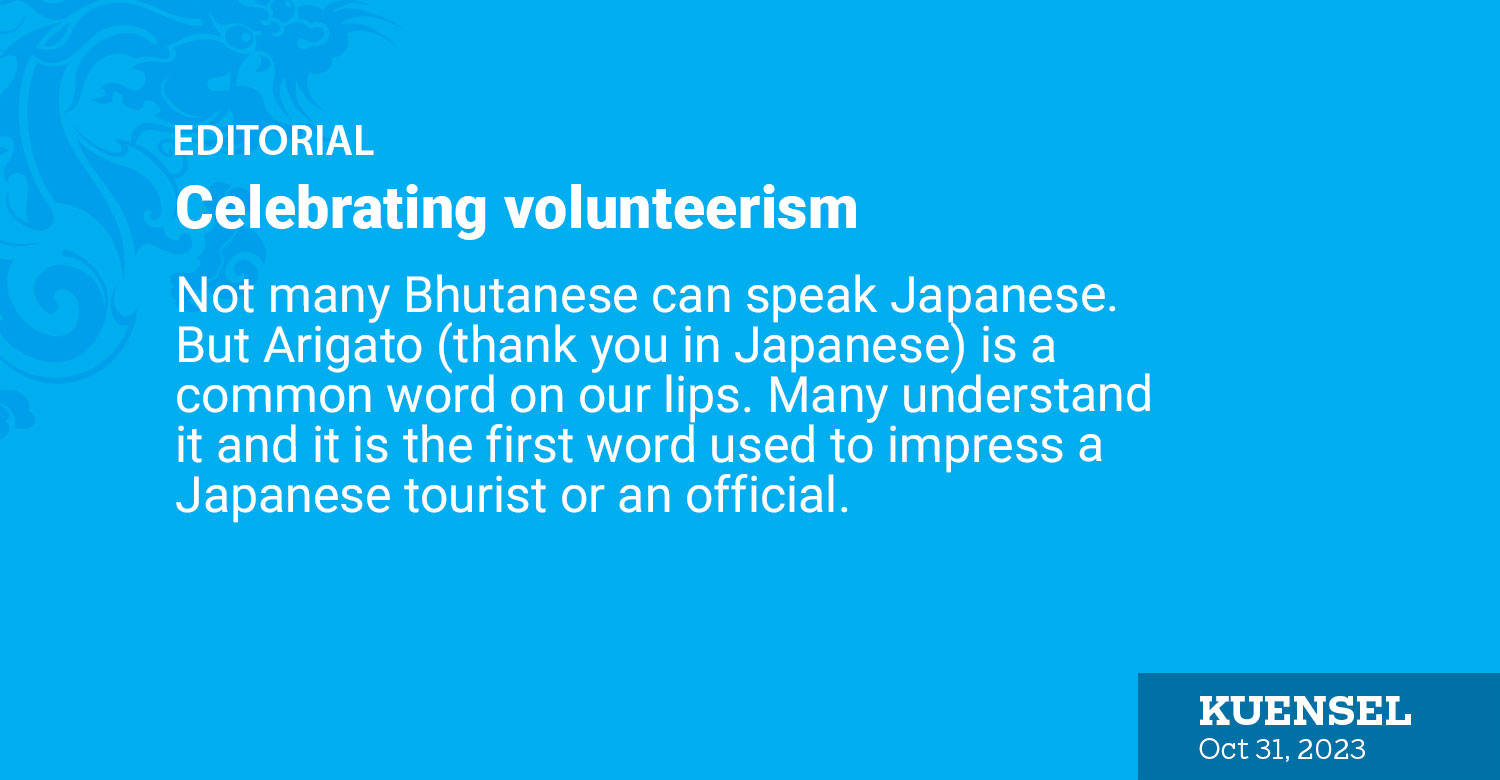Not many Bhutanese can speak Japanese. But Arigato (thank you in Japanese) is a common word on our lips. Many understand it and it is the first word used to impress a Japanese tourist or an official.
On Friday, October 27, the Embassy of Japan organised the annual Japan Week in Thimphu to mark 35 years of Japanese Overseas Cooperation Volunteer service in Bhutan. Beyond the Karate and Judo demonstration to the delight of the officials present at the celebrations, it was a solemn moment to say Arigato to the volunteers who have played an important role in the development journey of Bhutan.
The overseas volunteer programme may not be talked about much – as less as we speak Japanese – but the volunteer programme, many say, have contributed to the fields hundreds of volunteers were dispatched to in Bhutan. The first batch of volunteers was dispatched in 1998 to the then Agriculture Machinery Centre, Paro. As an agrarian society, agriculture was the field Bhutan needed expertise, consultancies or volunteer – experts.
The results of the programme are etched in the minds of elderly Parop farmers. They still say Arigato to the JICA prorgamme, as agriculture transformed and Paro became the first dzongkhag to embrace farm mechanization to the extent that owning a power tiller became a social status once.
Since then, 641 Japanese volunteers have worked in 14 dzongkhags in the fields of education, health, ICR sports, infrastructure, architecture and urban planning. Given certain cultural similarities between Bhutanese and Japanese, apart from drinking Sakey or Ara, Bhutanese whole-heartedly welcomed the volunteers. The PT (Physical Training) teacher or the serious agriculturist or the expert die-caster at the machinery centre was always seen as bringing new ideas.
Japan and Bhutan have enjoyed good relations for decades, and still continues to do so, with Japan contributing significantly to the development and modernisation of Bhutan. The volunteers may not be as visible as the technical and financial assistance, but they have played a part to the extent that some organisations looked at the programme to fill manpower shortage.
The volunteer prorgramme, not only JICA volunteers, if utilised to the fullest could contribute in fields where expertise is in short supply. Volunteer programmes depute volunteers who could contribute meaningfully to the host countries and should not be seen as filling the human resource shortage. Some volunteers who served in developing countries in Asia and Africa felt that they either worked in isolation or were given specific tasks without getting to work together.
As we celebrate the 35th anniversary, the JICA volunteer programme’s grassroots approach is a good example of experience-sharing. Living, working, thinking and finding solutions to solve local problems locally is a good approach. Although the number of volunteers is decreasing, we could reinvent the programme. If making plough for diesel-powered tillers was the priority in the 1990s, it is the rapid advancement of technology today. How well we make use of the programme depends on how we prioritise the need and the commitment of the volunteers and the host.


